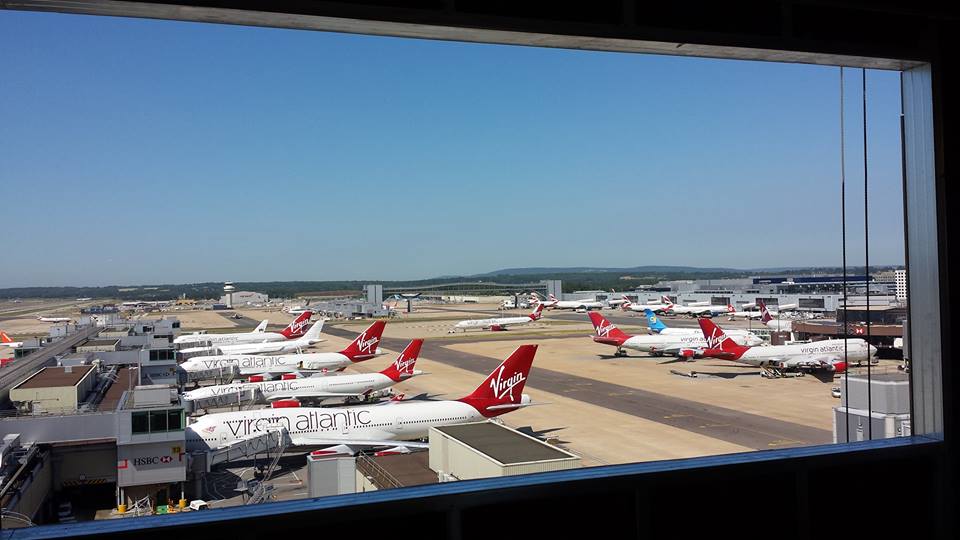British airports are the latest industry warning Theresa May’s Government about the perils of failing to quickly strike a post-Brexit deal with the EU, arguing that any doubt about securing an early deal risks creating a slump in air travel.
With little progress so far in Brexit negotiations the airports fear that even uncertainty about the prospects of a deal to cover air travel could be enough to see bookings drop by up to 41% or 16.2m journeys. That would translate to a 20.6% decline in aircraft movements or the loss of 297,000 flights, meaning a severe reduction in the options for British travellers.
A report written by the Conservative Party-linked Westminster consultancy WPI Economics on behalf of the airports found that almost half of passengers booking in the year ahead were likely to change their travel plans if there was any doubt over the status of flights.
The report has been submitted to the Government by the owners of Manchester, Stansted, Heathrow, Gatwick and London City airports, and concludes that even if flights are not interrupted when Britain is due to leave the EU in March 2019, passenger numbers are still likely to be hit hard without early assurances.

British airlines can operate freely within Europe but international air travel otherwise depends on a host of bilateral treaties and there is no default fallback for the UK outside the EU. Ryanair’s chief executive Michael O’Leary has been warning that flights between Britain and the EU could be grounded for months unless an early deal is put in place.
O’Leary has accused the British Government of making a naive error in assuming that all parties want to see a deal on aviation. In fact European airlines such as Lufthansa and Air France-KLM see the Brexit talks as an opportunity to rein in the British aviation industry, the largest in Europe, according to O’Leary.
The report for the airport industry warns that “although an 11th-hour deal may prevent planes from being grounded, damage to the aviation industry and the wider economy would have already been done.”
“With airlines, passengers and airports having to plan months if not years in advance, this has potentially detrimental consequences for UK competitiveness, trade, growth and living standards, which all become more significant the longer that UK and EU negotiators fail to deliver a new trading relationship or transitional deal.”
“The closer we get to the Article 50 deadline for the completion of withdrawal negotiations (end of March 2019), without the security of guaranteed future access to the single aviation market, the greater the negative economic consequences will be.”
The airports urged the Government to strike a deal as soon as possible, ideally before spring 2018. “Not doing so could mean that, hundreds of thousands of passengers and aircraft movements are affected. This will be bad for the aviation industry and bad for the economy.“
 A spokesperson for MAG, which owns Manchester, East Midlands and Stansted airports, said other sectors could plan on the basis of falling back on World Trade Organisation rules after Brexit “but the aviation industry is at a distinct disadvantage because in the event that the UK leaves the EU without a deal, it doesn’t have the same sort of ‘safety net’.”
A spokesperson for MAG, which owns Manchester, East Midlands and Stansted airports, said other sectors could plan on the basis of falling back on World Trade Organisation rules after Brexit “but the aviation industry is at a distinct disadvantage because in the event that the UK leaves the EU without a deal, it doesn’t have the same sort of ‘safety net’.”
“Tickets will soon go on sale for flights in a post-Brexit world and both airlines and passengers need assurance from the EU and UK government to enable them to plan for the future.”
Heathrow, one of the co-sponsors of the report, said it was confident that the Government understood the role aviation played in the economy. It has argued that its expansion plans for a third runway will be even more important in the event of Brexit.
The airports’ report follows other forthright advice from the aviation industry, notably from airlines, that clarity on the legal framework was needed soon or flight schedules – which are planned and sold up to a year in advance – would be jeopardised.
The Government has said that aviation is “absolutely crucial to the UK’s economy and we are committed to getting the right deal for Britain”. It has repeatedly said that it wants to ensure the UK has “liberal access to European aviation markets” and that new aviation arrangements are a ” top priority” for the Government’s Brexit negotiators.
by Bob Graham
The post Brexit: Airports Warn of Threat to Flights appeared first on Felix Magazine.
No comments:
Post a Comment